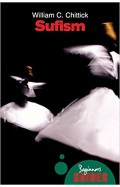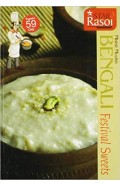Divine Flashes
By: William C. Chittick
-
Rs 675.00
- Rs 750.00
- 10%
You save Rs 75.00.
Due to constant currency fluctuation, prices are subject to change with or without notice.
DIVINE FLASHES
(Lama at by Fakhruddin ‘Iraq W. C. Chittick / Peter Lamborn Wilson Fakhrud din `Iraqi(1213-1289) was one of the foremost expositors of Sufi teachings and one of the greatest of Persian poets. He lived during the revival of Islamic spirituality that was shaped by the writings of Jalal al-Din Riami and Ibn ‘Arabi. ‘Iraqi’s masterpiece Divine Flashes became a popular and influential text in Persian speaking Islamic lands. The work’s beautiful descriptions of “the mysteries of Union” in the language of love are classic expressions of Sufi love mysticism. In this volume, William Chittick and Peter Wilson present the first English edition of Divine Flashes with a sensitivity that conveys both the metaphysical richness and the poetic subtleties of the work. Writing in the preface to this book, Professor Seyyed Hossein Nasr says of ‘Iraqi : “If he sang the love of God in verses of great beauty, it is because his soul had itself become a song of God, a melody in harmony with, and a strain of, the music issuing from the abode of the Beloved”.
DIVINE FLASHES
(Lama at by Fakhruddin ‘Iraq W. C. Chittick / Peter Lamborn Wilson Fakhrud din `Iraqi(1213-1289) was one of the foremost expositors of Sufi teachings and one of the greatest of Persian poets. He lived during the revival of Islamic spirituality that was shaped by the writings of Jalal al-Din Riami and Ibn ‘Arabi. ‘Iraqi’s masterpiece Divine Flashes became a popular and influential text in Persian speaking Islamic lands. The work’s beautiful descriptions of “the mysteries of Union” in the language of love are classic expressions of Sufi love mysticism. In this volume, William Chittick and Peter Wilson present the first English edition of Divine Flashes with a sensitivity that conveys both the metaphysical richness and the poetic subtleties of the work. Writing in the preface to this book, Professor Seyyed Hossein Nasr says of ‘Iraqi : “If he sang the love of God in verses of great beauty, it is because his soul had itself become a song of God, a melody in harmony with, and a strain of, the music issuing from the abode of the Beloved”.
The Sufi Path of Love: The Spiritual Teachings of Rumi (Suny Series in Islamic Spirituality) (Suny Series, Islamic Spirituality)
By: William C. Chittick
Rs 1,062.50 Rs 1,250.00 Ex Tax :Rs 1,062.50
Science Of The Cosmos Science Of The Soul
By: William C. Chittick
Rs 560.00 Rs 700.00 Ex Tax :Rs 560.00
Imaginal Worlds - Ibn Al-ʻArabī and the Problem of Religious Diversity
By: William C. Chittick
Rs 640.00 Rs 800.00 Ex Tax :Rs 640.00
Zubin Mehta: A Musical Journey (An Authorized Biography)
By: VOID - Bakhtiar K. Dadabhoy
Rs 892.50 Rs 1,050.00 Ex Tax :Rs 892.50
An Ocean without Shore Ibn Arabi the Book and the Law
By: Michel Chodkiewiez
Rs 624.00 Rs 780.00 Ex Tax :Rs 624.00
The Inner Journey Views From the Islamic Tradition
By: William Chittick
Rs 760.00 Rs 950.00 Ex Tax :Rs 760.00
The Sufi Path of Love: The Spiritual Teachings of Rumi (Suny Series in Islamic Spirituality) (Suny Series, Islamic Spirituality)
By: William C. Chittick
Rs 1,062.50 Rs 1,250.00 Ex Tax :Rs 1,062.50
The Origins of Political Order From Prehuman Times to the French RevolutioN
By: Francis Fukuyama
Rs 4,045.50 Rs 4,495.00 Ex Tax :Rs 4,045.50
Manning Up: How the Rise of Women Has Turned Men into Boys
By: Kay Hymowitz
Rs 845.75 Rs 995.00 Ex Tax :Rs 845.75
The Obama Syndrome: Surrender At Home War Abroad
By: Tariq Ali
Rs 1,100.75 Rs 1,295.00 Ex Tax :Rs 1,100.75
The Quest For Meaning: Developing A Philosophy Of Pluralism
By: Tariq Ramadan
Rs 1,185.75 Rs 1,395.00 Ex Tax :Rs 1,185.75
An Ocean without Shore Ibn Arabi the Book and the Law
By: Michel Chodkiewiez
Rs 624.00 Rs 780.00 Ex Tax :Rs 624.00
The Inner Journey Views From the Islamic Tradition
By: William Chittick
Rs 760.00 Rs 950.00 Ex Tax :Rs 760.00
The Sufi Path of Love: The Spiritual Teachings of Rumi (Suny Series in Islamic Spirituality) (Suny Series, Islamic Spirituality)
By: William C. Chittick
Rs 1,062.50 Rs 1,250.00 Ex Tax :Rs 1,062.50
Self-Made: Creating Our Identities from Da Vinci to the Kardashians
By: Tara Isabella Burton
Rs 3,650.75 Rs 4,295.00 Ex Tax :Rs 3,650.75
Delivered from Distraction: Getting the Most out of Life with Attention Deficit Disorder
By: Edward M. Hallowell
Rs 3,415.50 Rs 3,795.00 Ex Tax :Rs 3,415.50
Frazzled #3: Minor Incidents And Absolute Uncertainties
By: Booki Vivat
Rs 1,100.75 Rs 1,295.00 Ex Tax :Rs 1,100.75
The Vampire Diaries: The Awakening and The Struggle
By: L. J. Smith
Rs 2,875.50 Rs 3,195.00 Ex Tax :Rs 2,875.50
Zubin Mehta: A Musical Journey (An Authorized Biography)
By: VOID - Bakhtiar K. Dadabhoy
Rs 892.50 Rs 1,050.00 Ex Tax :Rs 892.50
The Sufi Path of Love: The Spiritual Teachings of Rumi (Suny Series in Islamic Spirituality) (Suny Series, Islamic Spirituality)
By: William C. Chittick
Rs 1,062.50 Rs 1,250.00 Ex Tax :Rs 1,062.50
Science Of The Cosmos Science Of The Soul
By: William C. Chittick
Rs 560.00 Rs 700.00 Ex Tax :Rs 560.00
Imaginal Worlds - Ibn Al-ʻArabī and the Problem of Religious Diversity
By: William C. Chittick
Rs 640.00 Rs 800.00 Ex Tax :Rs 640.00
An Ocean without Shore Ibn Arabi the Book and the Law
By: Michel Chodkiewiez
Rs 624.00 Rs 780.00 Ex Tax :Rs 624.00
The Inner Journey Views From the Islamic Tradition
By: William Chittick
Rs 760.00 Rs 950.00 Ex Tax :Rs 760.00
The Sufi Path of Love: The Spiritual Teachings of Rumi (Suny Series in Islamic Spirituality) (Suny Series, Islamic Spirituality)
By: William C. Chittick
Rs 1,062.50 Rs 1,250.00 Ex Tax :Rs 1,062.50






















-120x187.jpg?q6)








-120x187.jpg?q6)












